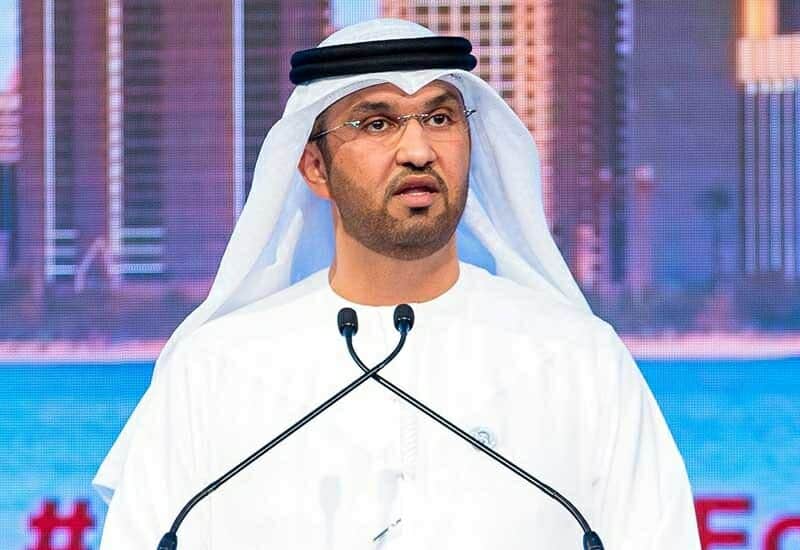Riyadh, Saudi Arabia – The president of the upcoming COP28 climate talks in Dubai called on Sunday for governments to abandon the “fantasy” of hastily ditching existing energy infrastructure in pursuit of climate goals.
“We cannot unplug the energy system of today before we build the new system of tomorrow. It is simply not practical or possible,” Sultan Al Jaber said during the opening session of the Middle East and North Africa (MENA) Climate Week, a UN-organized conference hosted in the Saudi capital Riyadh.
“We must separate facts from fiction, reality from fantasy, impact from ideology, and we must ensure that we avoid the traps of division and destruction.”
Climate activists have criticized the appointment of Jaber to lead the COP28 talks which kick off in Dubai next month, given that he is also head of the Emirati state-owned oil firm ADNOC.
But Jaber has garnered the support of COP parties including US climate envoy John Kerry, partly by emphasising his belief that “the phase-down of fossil fuels is inevitable”.
Energy officials in the United Arab Emirates and other oil-producing countries – notably Saudi Arabia, the world’s biggest oil exporter – have argued for continued investments in fossil fuels to ensure energy security even as they eye an eventual transition away from them.
The talks in Riyadh are intended to “shine a spotlight on challenges and solutions in a region that is among the most vulnerable to the effects of climate change,” organisers said in a press release on Sunday.
The region must already grapple with high temperatures and water scarcity, with more than 60 percent of the population having “very little if any access to potable water”, the statement said.
“Increasing temperatures are predicted to lead to more persistent and acute drought,” it added.
Jaber also highlighted challenges facing the region, referring to extreme events like hurricane-strength Storm Daniel, which last month caused two dams in eastern Libya to burst and flood the city of Derna.
“The Middle East and North Africa region is at a crossroads, facing not only the devastating impacts of climate change but also the challenge of transitioning their economies to ensure prosperity in a 1.5C aligned world,” said Simon Stiell, executive secretary of UN Climate Change, referring to the warming limit agreed in Paris in 2015.








